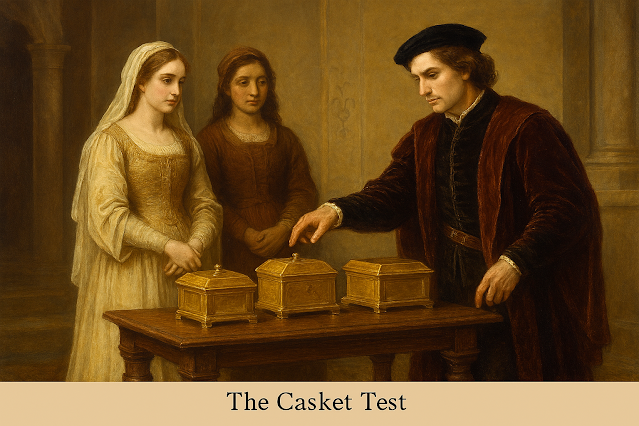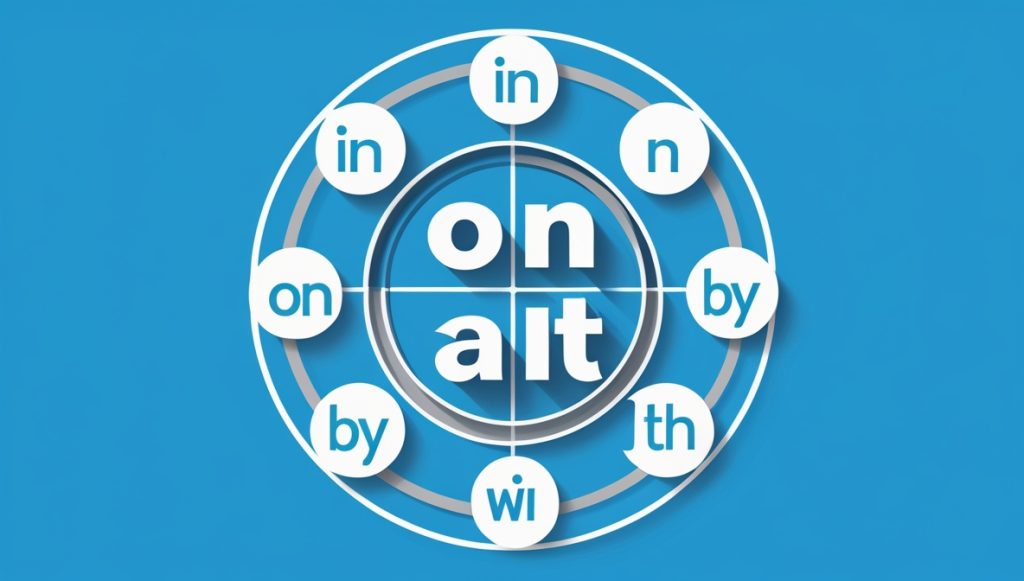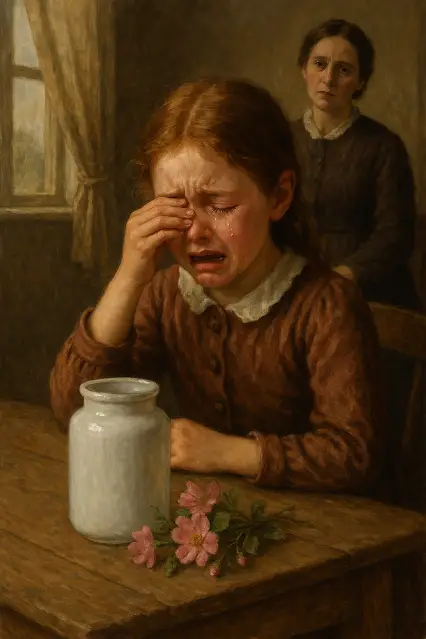The Story of An Hour
Kate Chopin (1894)
Knowing that Mrs. Mallard was afflicted with a heart trouble, great care was taken to break to her as gently as possible the news of her husband’s death.
It was her sister Josephine who told her, in broken sentences; veiled hints that revealed in half concealing. Her husband’s friend Richards was there, too, near her. It was he who had been in the newspaper office when intelligence of the railroad disaster was received, with Brently Mallard’s name leading the list of “killed.” He had only taken the time to assure himself of its truth by a second telegram, and had hastened to forestall any less careful, less tender friend in bearing the sad message.
She did not hear the story as many women have heard the same, with a paralyzed inability to accept its significance. She wept at once, with sudden, wild abandonment, in her sister’s arms. When the storm of grief had spent itself she went away to her room alone. She would have no one follow her.
There stood, facing the open window, a comfortable, roomy armchair. Into this she sank, pressed down by a physical exhaustion that haunted her body and seemed to reach into her soul.
She could see in the open square before her house the tops of trees that were all aquiver with the new spring life. The delicious breath of rain was in the air. In the street below a peddler was crying his wares. The notes of a distant song which some one was singing reached her faintly, and countless sparrows were twittering in the eaves.
There were patches of blue sky showing here and there through the clouds that had met and piled one above the other in the west facing her window.
She sat with her head thrown back upon the cushion of the chair, quite motionless, except when a sob came up into her throat and shook her, as a child who has cried itself to sleep continues to sob in its dreams.
She was young, with a fair, calm face, whose lines bespoke repression and even a certain strength. But now there was a dull stare in her eyes, whose gaze was fixed away off yonder on one of those patches of blue sky. It was not a glance of reflection, but rather indicated a suspension of intelligent thought.
There was something coming to her and she was waiting for it, fearfully. What was it? She did not know; it was too subtle and elusive to name. But she felt it, creeping out of the sky, reaching toward her through the sounds, the scents, the color that filled the air.
Now her bosom rose and fell tumultuously. She was beginning to recognize this thing that was approaching to possess her, and she was striving to beat it back with her will–as powerless as her two white slender hands would have been. When she abandoned herself a little whispered word escaped her slightly parted lips. She said it over and over under hte breath: “free, free, free!” The vacant stare and the look of terror that had followed it went from her eyes. They stayed keen and bright. Her pulses beat fast, and the coursing blood warmed and relaxed every inch of her body.
She did not stop to ask if it were or were not a monstrous joy that held her. A clear and exalted perception enabled her to dismiss the suggestion as trivial. She knew that she would weep again when she saw the kind, tender hands folded in death; the face that had never looked save with love upon her, fixed and gray and dead. But she saw beyond that bitter moment a long procession of years to come that would belong to her absolutely. And she opened and spread her arms out to them in welcome.
There would be no one to live for during those coming years; she would live for herself. There would be no powerful will bending hers in that blind persistence with which men and women believe they have a right to impose a private will upon a fellow-creature. A kind intention or a cruel intention made the act seem no less a crime as she looked upon it in that brief moment of illumination.
And yet she had loved him–sometimes. Often she had not. What did it matter! What could love, the unsolved mystery, count for in the face of this possession of self-assertion which she suddenly recognized as the strongest impulse of her being!
“Free! Body and soul free!” she kept whispering.
Josephine was kneeling before the closed door with her lips to the keyhold, imploring for admission. “Louise, open the door! I beg; open the door–you will make yourself ill. What are you doing, Louise? For heaven’s sake open the door.”
“Go away. I am not making myself ill.” No; she was drinking in a very elixir of life through that open window.
Her fancy was running riot along those days ahead of her. Spring days, and summer days, and all sorts of days that would be her own. She breathed a quick prayer that life might be long. It was only yesterday she had thought with a shudder that life might be long.
She arose at length and opened the door to her sister’s importunities. There was a feverish triumph in her eyes, and she carried herself unwittingly like a goddess of Victory. She clasped her sister’s waist, and together they descended the stairs. Richards stood waiting for them at the bottom.
Some one was opening the front door with a latchkey. It was Brently Mallard who entered, a little travel-stained, composedly carrying his grip-sack and umbrella. He had been far from the scene of the accident, and did not even know there had been one. He stood amazed at Josephine’s piercing cry; at Richards’ quick motion to screen him from the view of his wife.
When the doctors came they said she had died of heart disease–of the joy that kills.
Summary
Mrs. Louise Mallard, a woman with a heart condition, receives the shocking news that her husband, Brently Mallard, has died in a train accident. Her sister, Josephine, gently breaks the news, fearing the emotional impact due to Louise’s fragile health.
Initially devastated, Louise retreats to her room to grieve. However, as she sits alone, a surprising feeling begins to emerge—a sense of freedom. She realizes that with her husband gone, she is now free to live her life for herself, without being bound by the expectations of marriage. This revelation fills her with joy and hope for the future.
Just as she begins to embrace this newfound independence, Brently Mallard walks through the front door—alive and unaware of the reported accident. The shock is too much for Louise, and she collapses and dies. The doctors claim she died of “a joy that kills,” though the story suggests it was the loss of her brief taste of freedom that truly broke her heart.
সারাংশ
মিসেস লুইস ম্যালার্ড, একজন হৃদরোগে আক্রান্ত নারী, হঠাৎ জানতে পারেন যে তার স্বামী ব্রেন্টলি ম্যালার্ড একটি ট্রেন দুর্ঘটনায় মারা গেছেন। তার বোন জোসেফিন ধীরে ধীরে তাকে এই দুঃসংবাদটি জানান, কারণ লুইসের শারীরিক অবস্থা খুবই নাজুক।
প্রথমে তিনি গভীর শোকে ভেঙে পড়েন এবং নিজের ঘরে চলে যান। কিন্তু একা বসে থাকার সময় তার মধ্যে একটি অপ্রত্যাশিত অনুভূতি জাগ্রত হয়—একটি স্বাধীনতার অনুভূতি। তিনি বুঝতে পারেন, তার স্বামী মারা যাওয়ায় তিনি এখন নিজের জন্য বাঁচতে পারবেন, আর বিবাহের বাধ্যবাধকতা তাকে আটকে রাখবে না। এই উপলব্ধি তাকে আনন্দ ও ভবিষ্যতের আশায় পূর্ণ করে তোলে।
ঠিক যখন তিনি এই নতুন স্বাধীনতাকে গ্রহণ করতে শুরু করেন, তখন ব্রেন্টলি ম্যালার্ড দরজা দিয়ে প্রবেশ করেন—তিনি জীবিত এবং দুর্ঘটনার খবর সম্পর্কে কিছুই জানতেন না। এই আকস্মিক ধাক্কা লুইসের জন্য সহ্য করার মতো ছিল না, এবং তিনি মাটিতে লুটিয়ে পড়ে মারা যান। ডাক্তাররা বলেন, তিনি “আনন্দে মারা গেছেন,” কিন্তু গল্পটি ইঙ্গিত করে যে, তার সাময়িক স্বাধীনতা হারানোর যন্ত্রণাই তার হৃদয় ভেঙে দিয়েছিল।
The main themes of “The Story of an Hour” by Kate Chopin
1. Freedom and Independence
- The central theme is personal freedom, especially for women in marriage. Louise Mallard’s reaction to her husband’s death reveals her deep yearning for independence and self-assertion.
2. Marriage and Oppression
- The story critiques the institution of marriage, suggesting that even a loving marriage can be restrictive. Louise feels liberated when she believes her husband is dead, implying that marriage limited her autonomy.
3. The Role of Women
- Chopin explores the limited roles and expectations placed on women in the 19th century. Louise’s brief experience of freedom highlights the constraints women faced in society and relationships.
4. Irony
- The story is rich in situational irony. Louise dies from the shock of seeing her husband alive—not from joy, but likely from the crushing realization that her freedom was gone.
5. Identity and Selfhood
- Louise’s internal transformation shows her discovering a sense of self beyond her role as a wife. Her thoughts reflect a desire to live for herself, not for others.
Irony is used in the story
Irony plays a central role in “The Story of an Hour” and is used to highlight the contrast between expectation and reality, especially in the context of marriage, freedom, and death. Here are the key examples of irony in the story:
1. Situational Irony
- The most striking irony is that Mr. Mallard is not actually dead. Everyone believes he died in a train accident, but he walks in alive and unharmed. This twist completely reverses the situation and leads to Louise’s death.
- Louise dies from the shock of seeing her husband alive—not from joy, as the doctors claim, but likely from grief and despair at losing her newfound freedom.
2. Verbal Irony
- The phrase “a joy that kills” is ironic. The doctors assume Louise died from overwhelming happiness, but the reader understands that her death was likely caused by the loss of her brief taste of liberation.
3. Dramatic Irony
- The reader knows more about Louise’s internal transformation than the other characters. While her family believes she is grieving, the reader sees that she is actually feeling relieved and hopeful about a life without her husband.
4. Irony of Expectations
- Society expects a wife to be devastated by her husband’s death. Louise’s reaction defies this norm—she feels joy and freedom, which is unexpected and ironic given the context.
Irony in this story is used to challenge societal norms, especially around marriage and gender roles, and to deliver a powerful emotional and philosophical impact in a very short narrative.
Answer the following questions:
- Who had brought the news of Mr. Brently Mallard’s death?
The news was brought by Richards, a friend of Mr. Mallard, who had learned about the railroad accident. - How did Mr. Mallard die, according to the rumour?
According to the report, Mr. Mallard died in a railroad accident. - Why was everyone scared of breaking the news to Mrs. Mallard?
Mrs. Mallard had heart trouble, so they were cautious and gentle in delivering the tragic news to avoid shocking her. - How did Mrs. Mallard react after getting the death news?
Initially, she wept with sudden, wild abandonment, showing deep grief. - How did her reactions change when she went to her room?
Alone in her room, she experienced a shift—she felt a sense of relief and freedom, realizing she was now free from the constraints of marriage. - Why do you think Mrs. Mallard felt happy and free?
Mrs. Mallard felt happy and free because she realized that with her husband’s death, she was no longer bound by the expectations and limitations of marriage. - What do you mean by the statement “a joy that kills”?
It means that Mrs. Mallard died not from happiness, but from the shock and heartbreak of losing her new freedom. - What happened to Mrs. Mallard at the end of the story?
Mrs. Mallard died suddenly, and the doctors said it was due to heart disease—“a joy that kills.”
Set 1
(a) What health condition did Mrs. Mallard have?
Mrs. Mallard had heart trouble.
(b) What was the condition of Mrs. Mallard when she heard about her husband’s death?
She reacted with sudden, wild abandonment, weeping immediately in her sister’s arms.
(c) Why was great care taken in delivering the news to Mrs. Mallard?
Because of her heart condition, the news could have caused a dangerous shock.
(d) How did Josephine and Richards handle the situation?
Josephine and Richards handled the situation with great care, gently delivering the news to Mrs. Mallard to avoid shocking her due to her heart condition.
(e) What did Mrs. Mallard do after her initial outburst of grief?
She went alone to her room, refusing to let anyone follow her, and sat in a comfortable armchair facing an open window.
(f) What does Mrs. Mallard see outside her window that symbolizes life?
She saw tops of trees aquiver with new spring life, patches of blue sky, birds twittering, and fresh air—all symbols of renewal and vitality.
(g) What was the condition of the outside environment when Mrs. Mallard was in her room?
The environment was lively and fresh, with a peddler crying his wares, distant singing, and sparrows chirping.
(h) What does Mrs. Mallard hear from the street that indicates life goes on?
She hears a peddler crying his wares, a distant song, and sparrows twittering—all signs of everyday life continuing.
(i) How did Mrs. Mallard’s physical state reflect her emotional state?
She was physically exhausted, sinking into the chair, which reflected her emotional weight and inner turmoil.
(j) What is the symbolic significance of the distant song and the sparrows?
They symbolize freedom, continuity, and the vibrancy of life, contrasting with her grief and hinting at her emerging sense of liberation.
Set 2
(a) What was the description of the young woman’s face at the beginning of the text?
Her face was described as fair, calm, and showing signs of repression and strength.
(b) What does the dull stare in her eyes indicate?
It indicates a suspension of intelligent thought—she was in a state of emotional shock or deep contemplation.
(c) What was the young woman waiting for fearfully?
She was waiting for a feeling that was approaching to possess her, something she was trying to resist.
(d) How does the young woman’s perception change as she begins to recognize the thing that approaches to possess her?
She begins to understand and accept the feeling, realizing it is a sense of freedom and release from her previous life.
(e) What is the significance of the word ‘free’ that the young woman whispers to herself?
It symbolizes her emotional liberation—she is no longer bound by the expectations and constraints of marriage.
(f) Why did the young woman feel fear and a need to resist the approaching feeling?
Because it was unexpected and unfamiliar, and it conflicted with societal norms about how a widow should feel.
(g) How did the young woman react to the thought of years ahead of her?
She felt a sense of joy and relief, imagining a future where she could live for herself alone.
(h) What is the contrast between the young woman’s initial reaction and her later emotions?
Initially, she was grief-stricken and overwhelmed, but later she felt joyful, liberated, and hopeful.
(i) How did the thought of the future affect the woman’s physical state?
It relaxed her body, and she felt warmth and energy, reflecting her emotional transformation.
(j) Why did the woman open and spread her arms to welcome the coming years?
She was embracing her newfound freedom, ready to live a life of self-assertion and independence.
Set 3
(a) What was the strongest impulse that Mrs. Mallard suddenly recognized within herself?
The strongest impulse she recognized was a desire for freedom—to live for herself and make her own choices.
(b) Why do men and women have no right to impose a private will upon a fellow-creature?
Because doing so violates individual freedom, even if done with good intentions or love.
(c) What did the woman think about love in the face of her newfound self-assertion?
She realized that love is not as important as self-ownership and independence.
(d) Why did Josephine beg her sister, Louise, to open the door?
Josephine was worried about Louise’s health and emotional state, fearing she might harm herself due to her grief.
(e) Why did the woman carry herself unwittingly like a goddess of victory?
Because she felt triumphant and liberated, having embraced her newfound freedom.
(f) What is the symbolism of the ‘elixir of life’ in the context of the passage?
It symbolizes renewal, vitality, and the joy of living freely, which Mrs. Mallard feels after realizing her independence.
(g) What did Josephine and Richards do after descending the stairs?
They were rejoining Louise, unaware of the shocking twist that was about to happen.
(h) Why did Brently Mallard enter the house with a latchkey?
Because he was unaware of the reported accident and had not died—he was simply returning home.
(i) What was the condition of Brently Mallard when he entered the house?
He was alive, uninjured, and surprised by the reactions of those around him.
(j) What was the ultimate cause of Mrs. Mallard’s death according to doctors?
The doctors said she died of heart disease—of joy that kills, though the irony is that it was likely shock and despair upon seeing her husband alive.
Set 4
(a) What health condition did Mrs. Mallard have?
Mrs. Mallard had heart trouble.
(b) What was Mrs. Mallard’s condition when she heard about her husband’s death?
She wept at once with sudden, wild abandonment in her sister’s arms. She did not react with paralyzed inability like many women might.
(c) Why was great care taken in delivering the news to Mrs. Mallard?
Because of her heart condition, the news could have been dangerous or overwhelming for her emotionally and physically.
(d) How did Josephine and Richards handle the situation?
Josephine told her the news in broken sentences and veiled hints, while Richards had confirmed the news and came quickly to ensure it was delivered gently and carefully.
(e) What did Mrs. Mallard do after the initial outburst of grief?
She went alone to her room, refusing to let anyone follow her, and sat in a comfortable armchair facing an open window.
(f) What does Mrs. Mallard see outside the window that symbolizes life?
She saw tops of trees aquiver with new spring life, blue sky, sparrows twittering, a peddler crying his wares, and the delicious breath of rain—all symbols of renewal and vitality.
(g) What was the condition of the outside environment when Mrs. Mallard was in her room?
The environment was lively and fresh, with signs of spring, rain-scented air, birds chirping, and distant singing—a contrast to her grief.
(h) What does Mrs. Mallard’s reaction suggest about her inner feelings?
Her reaction, especially the sense of relief and freedom she begins to feel, suggests that she may have felt oppressed in her marriage and is now experiencing a new sense of independence.
Set 5
- What health condition did Mrs. Mallard have?
She had heart trouble. - How was the condition of Mrs. Mallard when she heard about her husband’s death?
She wept at once with sudden, wild abandonment in her sister’s arms. - How did Josephine and Richards handle the situation?
Josephine told her the news in broken sentences and veiled hints, while Richards had confirmed the news and came quickly to ensure it was delivered gently and carefully. - What was Mrs. Mallard’s first outburst of grief?
She cried wildly and suddenly, embracing her sister. - What does Mrs. Mallard do after this first outburst that symbolizes life?
She went to her room alone and looked out the window at spring life, blue sky, birds chirping, and fresh air—all symbols of renewal and freedom. - What was the condition of the outside street when Mrs. Mallard was in her room?
The street was lively, with a peddler crying his wares, birds twittering, and distant singing. - How does Mrs. Mallard feel after this momentary state?
She begins to feel a sense of freedom and relief, realizing she is now free from the constraints of marriage.




